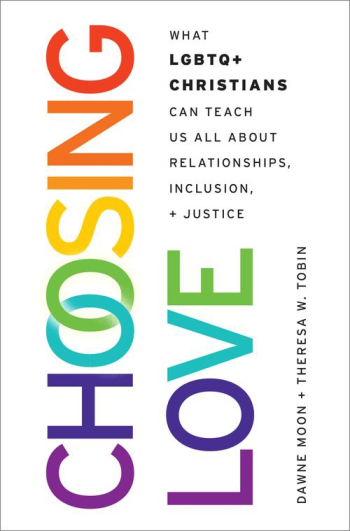Book of the Day Roundup: June 9-13, 2025
Amaranthine Chevrolet

Dennis E. Bolen
Rare Machines
Softcover $19.99 (256pp)
978-1-4597-5477-5
Buy: Local Bookstore (Bookshop)
Dennis E. Bolen’s insightful, beautiful coming-of-age novel Amaranthine Chevrolet is a hero’s journey filled with danger and yearning.
In 1967 on a Saskatchewan farm, fifteen-year-old Robin responds to the death of his caretaker-slash-employer by taking off in his boss’s field truck on a thousand-mile trek across Western Canada. Too young to legally drive, Robin ducks the police and takes lesser-used farm roads, making his way toward his mother’s home on the coast. Along the way, he has a run-in with a drunk, shares a meal with American draft-dodgers, and falls in love. As his antique truck struggles, he receives aid from a farmer and a counselor, among others, in replacing the Chevy’s parts.
Robin’s hope and trust throb behind the pages, and they are mirrored in the poetic prose. The distant mountains are a “great granite curtain,” and Robin’s ride through the flatlands is referred to as “seemingly eternal prairie sameness.” When Robin meets John, who helps him repair a busted oil pan, John speaks about art, wishing Robin would “feel the psychic vibrations the artist meant for you over the span of time and the chasm of mortality.” Similar impartations are passed to Robin by others he meets along the road home. While the stakes may not feel high for much of his travels, Robin’s will to discover more combines with the emerging landscape and the kindness of strangers to propel the story toward the promise of better tomorrows.
Reflecting life in rural Canada in the 1960s, the wonderful historical novel Amaranthine Chevrolet shows strangers lending a helping hand to a boy on the road, who meets a world driven on by no small amount of hope.
NICK GARDNER (April 21, 2025)
The Aliens Do NOT Want to Go Home

Adam Gustavson
Charlesbridge
Hardcover $17.99 (40pp)
978-1-62354-494-2
Buy: Local Bookstore (Bookshop)
A muted palette and visible brushstrokes lend the impression of stepping into a painting in this cosmic picture book that will delight children and feel familiar to their guardians. A playdate on Earth is coming to a close—just as soon as the alien children complete their crop circle, finish their movie, and find their shoes (all five of them). When talk of a sleepover starts brewing, tractor beams from alien ships overhead declare it’s time to go home—ready or not.
DANIELLE BALLANTYNE (April 21, 2025)
The Wanderers

Mphuthumi Ntabeni
Catalyst Press
Softcover $18.95 (348pp)
978-1-960803-14-6
Buy: Local Bookstore (Bookshop)
An interwoven father-daughter story, Mphuthumi Ntabeni’s ambitious novel The Wanderers is a philosophical examination of the legacy of South African apartheid.
Although apartheid ended when Ruru, now a doctor, was still a child, she lived her life in its shadow. She never met her father, Phaks, whose activism forced him to flee the country before her birth; he died years ago. Still, Ruru moves to Tanzania, Phaks’s last known place of residence, in an attempt to track down whatever information she can. There she acquires his diaries, stretching from his boyhood through the time he spent abroad in service of the anti-apartheid “Organisation” and his existential musings while he went through the final stages of AIDS.
The novel is composed of three strands: Ruru’s present-day quest, the text of the diaries, and a set of letters that a teenage Ruru wrote upon the early death of her mother. The picture that emerges is both quotidian and extraordinary. It covers everyday life in the poor townships and rural homelands that apartheid set up, as well as the lengths to which the fight against such a system went, sending its foot soldiers as far as Moscow for training.
Predominantly intellectual in its approach, the book is marked by extended ruminations and a plethora of erudite references—as a high school student, Ruru reads St. Augustine, for example. There is an overall lack of emotional engagement, a factor echoed in the dropped storyline of Ruru’s reconnection with a lost love. Still, the novel soars in its unvarnished takes on South Africa’s current situation and in its presentation of a Black South African story.
The Wanderers is a cerebral novel that depicts South Africa’s modern history through the story of an absent father.
CAROLYN WILSON-SCOTT (April 21, 2025)
Choosing Love
What LGBTQ+ Christians Can Teach Us All About Relationships, Inclusion, and Justice

Dawne Moon
Theresa W. Tobin
Oxford University Press
Hardcover $29.99 (240pp)
978-0-19-777651-3
Buy: Local Bookstore (Bookshop)
Choosing Love is a wise, meditative book about the transformative power of connecting with LGBTQ+ Christians.
Featuring interviews with dozens of LGBTQ+ Christians alongside thoughtful perspectives on the Bible and theology, this book delivers an inclusive, compassionate message. Grounded in Martin Buber’s concept of the I-thou relationship, the book asserts that authentic connections occur when “armor” falls away and people are “touched at the core.” Its subjects include Darren, a gay Black man in Chicago who lived in a church sanctuary for four years to exorcise the “demon” of homosexuality; he now provides social justice training. Kai, who uses the Hawaiian third gender, māhū, describes how they sacrificed intimacy with others, seeing same-sex intimacy as incompatible with Christianity. Affirming communities of Christians helped both break cycles of abuse, accept “who God made them to be,” and forge positive relationships.
The book questions the traditional biblical interpretations that are used to condemn homosexuality. For instance, it asserts that God destroyed Sodom for its arrogance and indifference, not for homosexuality. In the gospels, Jesus cites only the sexual sins of remarrying after divorce and looking lustfully at women, admonishments most relevant to heterosexual men, it notes.
When Christians interact with LGBTQ+ people, they often get it wrong, the book suggests. For instance, an evangelical focus on saving souls from eternal damnation implies that God’s love is conditional. Similarly, when Christians see LGBTQ+ people as having a “disordered” capacity for sexual or romantic love, they foster shame and demonstrate hubris. However, when Christians get it right, with genuine love and affirmation, the experience is transformational: “True relationships call on you to sacrifice your power, authority, and worldview, your insistence on your own virtue, your sense of self as central.”
Choosing Love is a timely theology text that approaches LGBTQ+ communities with grace and insight.
KRISTEN RABE (April 21, 2025)
All This Can Be True

Jen Michalski
Turner Publishing Company
Hardcover $32.99 (288pp)
978-1-68442-608-9
Buy: Local Bookstore (Bookshop)
In Jen Michalski’s queer romance novel All This Can Be True, two women find each other and themselves after grief.
Just before Lacie asks her husband for a divorce, he has a stroke and winds up comatose. While torn between supporting her husband and starting fresh, Lacie sparks with another hospital visitor, Quinn, an ex-punk rock star reeling from the death of her daughter. The women bond over their grief. But Quinn has a secret connection to Lacie’s husband, and revealing it could upend Lacie’s life. As the women grow closer, they deal with the consequences of their actions to create a promising future.
Told via alternating viewpoints, the novel explores different aspects of grief. Lacie laments her husband’s condition but also regrets having put her husband first so often, while Quinn grapples with the guilt of keeping her secret from Lacie. The discussions of grief are complex, as are conversations about joy, connection, and progression. Lacie’s mother, for example, says, “We all make mistakes. But we’re human, and we deserve understanding and love. All this can be true”; these observations are later transformed into song lyrics by Quinn.
As grief, romance, and secrets blend together in complex ways in the novel, the prose remains accessible, with equal weight given to conversations and descriptive narration. Evocative similes, as of Lacie clinging to others like flotsam while dreaming of building her own boat to captain, and of Quinn filling the empty space in her life like cotton in a wound, are used to build empathy. As Quinn and Lacie’s stories interweave, each woman recognizes the joys and disappointments involved in relying on each other. They weigh the realities of what they want against what they truly need.
ALLISON JANICKI (April 21, 2025)
Kathy Young
